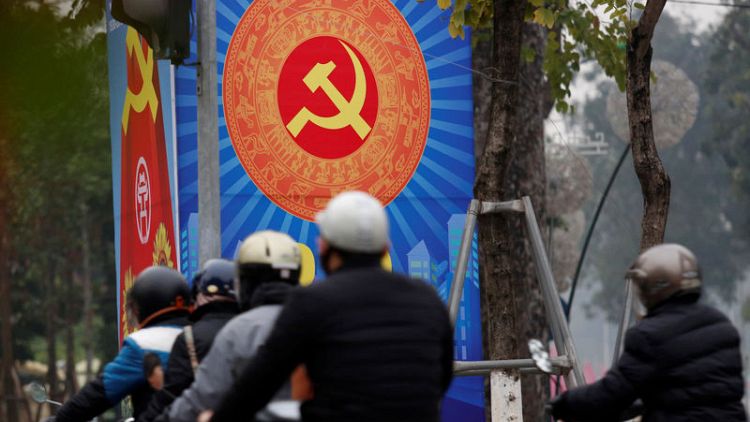HANOI (Reuters) - A Vietnamese academic has been expelled from the ruling Communist Party for posting comments on Facebook deemed to be critical of the party, the government said on Friday.
Tran Duc Anh Son, deputy head of the Danang Institute for Socio-Economic Development, was accused of "writing Facebook posts that were untrue and went against the party's views and state policies and laws," the government said in a statement.
Son had been critical at what he perceived as a soft approach by Vietnam on the South China Sea issue with China. Vietnam and China have long been embroiled in maritime disputes in the potentially energy-rich maritime territory.
Despite presiding over sweeping reforms and an increasingly market-oriented economy, the Communist Party of Vietnam tolerates little criticism.
"Tran Duc Anh Son's violations are very serious, causing negative public opinions, ... and damaging the prestige of the party," the government said.
Reuters could not immediately reach Son for comment.
His expulsion comes more than four months after the party publicly criticised a former vice minister of science and head of a publishing house, Chu Hao, for publishing translations of books it said were critical of socialism and one-party rule.
Facebook did not immediately respond to a Reuters request for comment on Friday.
Facebook is widely used in Vietnam and serves as the main platform for dissidents. Vietnam in January accused Facebook of violating a new controversial cybersecurity law by allowing users to post anti-government comments.
Global technology firms and rights groups have said the cybersecurity law, which took effect on Jan. 1 and requires companies to set up offices and store data in the country, could undermine development and stifle innovation in Vietnam.
Company officials have privately expressed concerns that the new law could make it easier for authorities to seize customer data and expose their Vietnamese employees to arrest.
Facebook Chief Executive Mark Zuckerberg alluded to the issue in a statement on his Facebook account this week.
"People should expect that we won't store sensitive data in countries with weak records on human rights like privacy and freedom of expression in order to protect data from being improperly accessed," he said.
(Reporting by James Pearson; Editing by Darren Schuettler)
